- Arakan residents call for air raid warning systems amid surge in junta airstrikes
- Arakan’s Breathing Space (or) Mizoram–Arakan Trade and Business
- Death toll rises to 18 after junta airstrike on Ponnagyun village market
- Regime arrests dozens of Muslims in Sittwe over alleged Arakan Army links
- Over 200 IDPs in Ponnagyun struggle without shelter, food aid
Arakan farmers find workers and combines in short supply amid IDP returns
Farmers in Kyauktaw Township say they are encountering a shortage of workers and combine harvesters despite it being time to harvest monsoon paddy in Arakan State.
14 Dec 2020
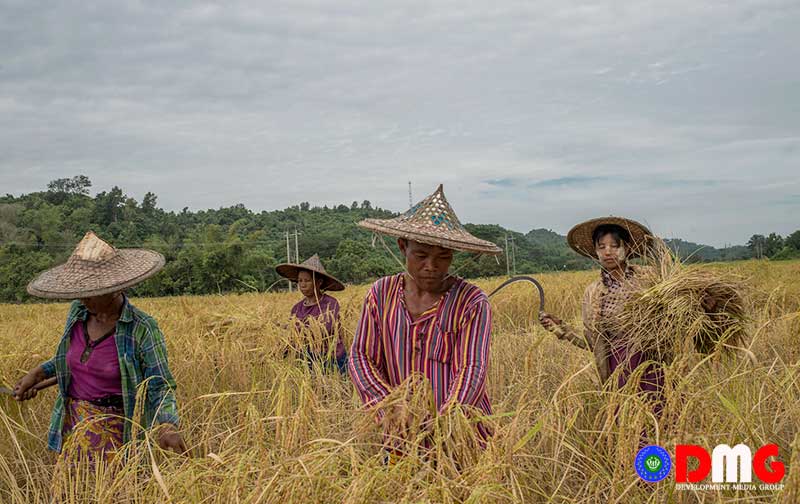
Nyan Hein | DMG
14 December 2020, Sittwe
Farmers in Kyauktaw Township say they are encountering a shortage of workers and combine harvesters despite it being time to harvest monsoon paddy in Arakan State.
“We rely on the combine harvesters to reap the paddy due to lack of workers. We have to pay over K5,000 per acre of paddy field,” said Ko Oo Tun Yin, a resident of Shwepyi village. “Some acres of paddy fields were damaged as combine harvesters were unable to harvest in time. I was also worried about fighting during the paddy harvest season.”
Many Arakanese farmers have fled to safer locations at one point or another during some two years of armed conflict in Arakan State, but more than 3,000 internally displaced people (IDPs) from Kyauktaw Township have reportedly returned home in recent weeks to harvest paddy.
“We have to rely on combine harvesters to reap the paddy for the time being. There are few combine harvesters, so we have to wait our turn. I want the government to help us so that we can harvest our paddy during the ceasefire,” said Ko Maung Tun Sein, a local from Kanpyin village in Rathedaung Township.
The local government would help the IDPs if there were any difficulties in harvesting paddy, said U Win Myint, Arakan State minister for Municipal Affairs and state government spokesperson.
“The local government provided a combine harvester to each township in Arakan State last year. I think it is not sufficient, but we also have difficulties solving this problem. The local government will take it into account if the plights of farmers are presented by the township administrators,” the minister told DMG.
The number of uncultivated acres of Arakan State farmland in Ponnagyun, Kyauktaw, Mrauk-U, Minbya, Rathedaung, and Myebon townships this year dropped when compared with 2019, according to U Kyaw Zan, chairman of the Arakan Farmers’ Union.
“We were not prepared to help the farmers,” he told DMG. “What I want to say to the government is that the government should compensate the farmers who cannot grow paddy as much as possible. We neither expected a ceasefire between the Tatmadaw and Arakan Army nor made preparations to help the farmers.”
As of November 2, the number of IDPs in Arakan State was reported at more than 236,000 due to the armed conflict between the Tatmadaw and the Arakan Army over the past two years. But about a month later, that number was down to some 190,000 as many IDPs have returned home recently with stability improving in their areas, according to data compiled by the Rakhine Ethnics Congress (REC).





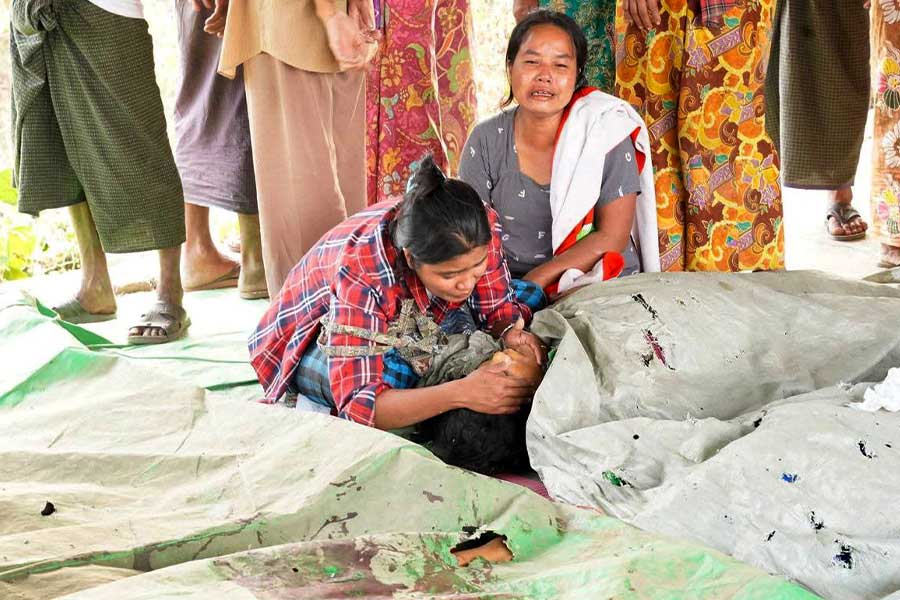
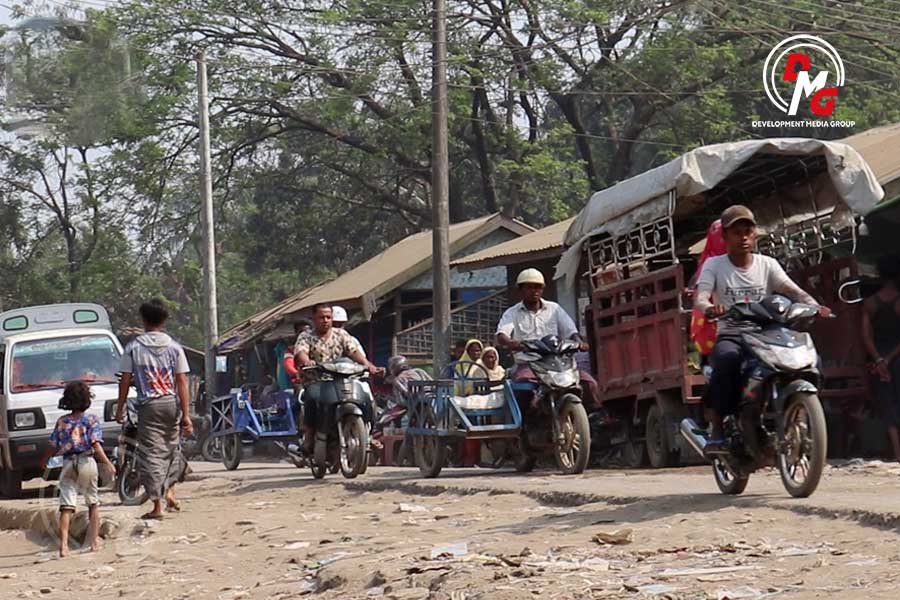
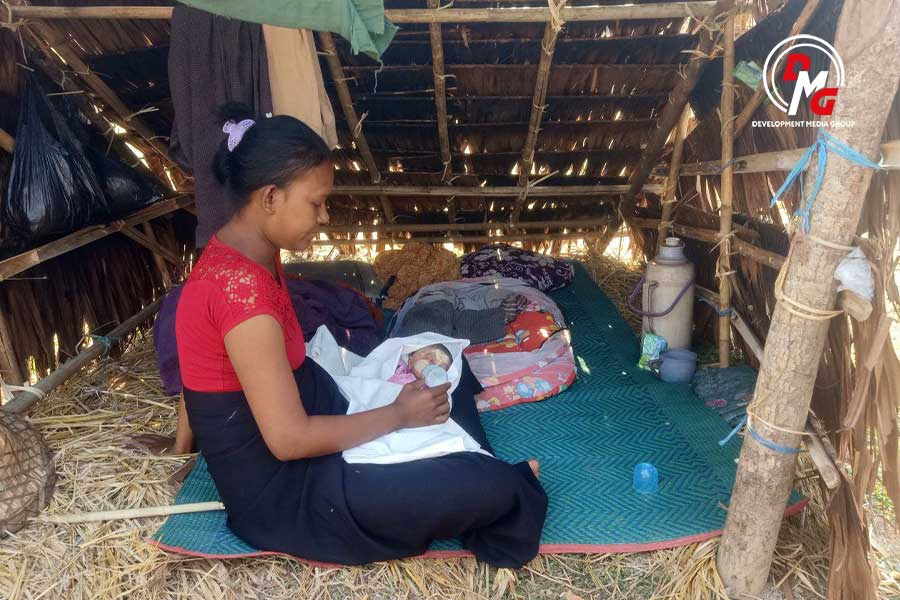
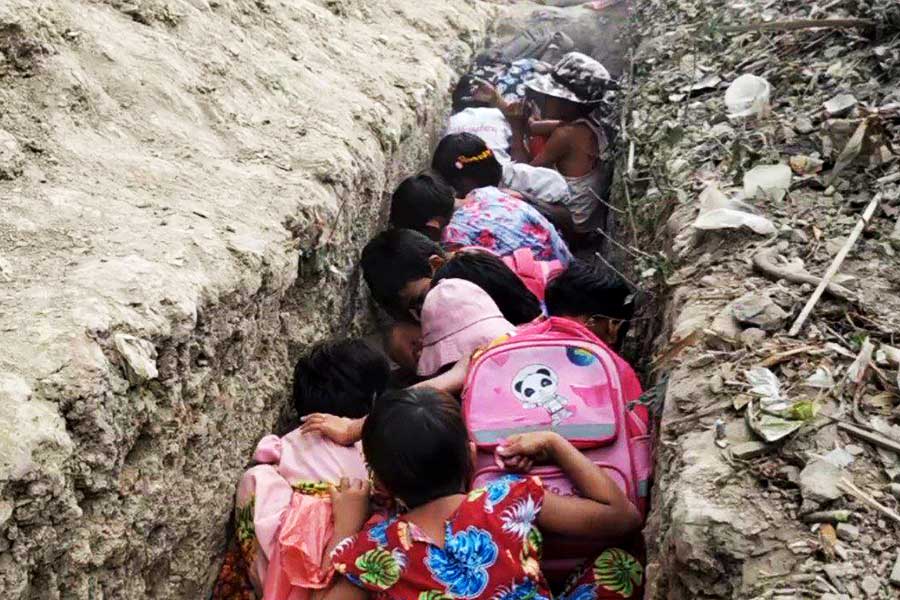








.jpg)